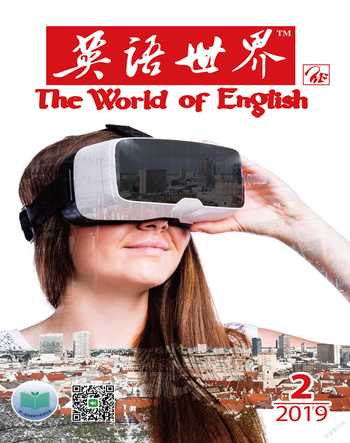何翘森
叶子南
A teacher of English at Shaoxing No.1 High School, Mr. He Qiaosen was quite a celebrity among English learners and instructors alike. Mention of his name often evoked admiration. A graduate from Hangchow University, he became its provost around 1950. He was also said to have had a teaching stint at a college in Shanxi. His academic credentials could have landed him in a college teaching position anyway. What was unclear was how he ended up teaching high school in a town outside the provincial capital. If you are familiar with recent Chinese history, you may think of some familiar culprits that spelled misfortune for a sizable portion of the intelligentsia. Was his banishment from a college campus a result of a political purge? I’m not sure. After the “Cultural Revolution”, there was word going around that his college position might be reinstated. But he somehow stayed put in Shaoxing, perhaps falling victim to academic parochialism.
I cannot recall how I got in touch with Mr. He. By mail, most probably, as there were no telephone lines in private homes back then. I made an appointment to see him at the school where he taught. He lived in the teachers’ dormitory. It was a cold and overcast day. I don’t remember whether it was early spring or late fall. After asking for direction near the school gate, I soon found myself in front of his dorm. Feeling honored, I tried to calm myself down for a few seconds before knocking on the door.
The door opened slowly, and right in front of me emerged Mr. He, a bespectacled gentleman of medium height in his fifties, his movements neither swift nor slow. After a brief exchange of greetings—in Mandarin or possibly in the Shaoxing dialect, he ushered me into his room, a cold and dark room with barely any furniture in it. It was not small, and quite deep, but didn’t feel spacious. You just couldn’t imagine how it was possible that a renowned scholar should be living in such a wretched place.
After we sat down, our conversation naturally turned to how to learn English. I was about 18, perhaps too young for him to share his life’s ups and downs with. Even if I had been mature enough, he wouldn’t have been more inclined to deviate from the topic of language learning. The “Cultural Revolution” had sent chills down almost everybody’s spine, leaving all and sundry reeling in fear and constantly on guard. You wouldn’t expect a man who had been rocked by rounds of political turmoil to be an exception. I did express my dismay at not being able to go to college. All schools were closed, and no one knew when they would reopen. To assuage my frustration, he explained that a college education was “not the only pebble on the beach”, using an English phrase, meaning that college wasn’t the only ticket to success and there were other things I could take a shot at. The key, he added, was perseverance. I was touched by his sincerity.
That day, we basically talked about more general things without getting into the weeds of language points. After that, I was in no mood to pay him another visit, overwhelmed by uncertainty in life.
After the “Cultural Revolution”, I enrolled in Hangzhou University’s foreign language program. By then Mr. He had retired. I still faintly remember visiting him at his apartment in Hangzhou, and seeing his grandchild there. But the topics of our conversation that day have been largely erased from my memory.
To be honest, my few brief meetings with him didn’t really amount to tutoring sessions. Calling him my mentor would be an overstatement. But in those turbulent times when I felt lost, I was truly indebted to his graciousness to see me, give me advice, rekindle my love for language learning, and rebuild my confidence in the future. Throughout my life’s journey, I’ve no lack of benefactors, and Mr. He might not mind if I count him among them.
何翘森先生是绍兴一中的外语老师,在当地外语界1很有名气。一次我和杨源老师2提起何先生,他马上竖起大拇指。何先生原来是之江大学毕业的,一九五零年前后好像在之江大学担任过教务长。也有人说,他曾在山西的一所大学当过教授3。按照那样的资歷,他本该在高校任教,但却在省城外的一个县城当中学老师,这其中的原委我不清楚。了解那段中国历史的人也许会想到那个让知识分子倒霉的事件,何老师是否也因政治因素而被赶出大学?我不得而知。后来还听说,“文革”结束后,有人想到何翘森,觉得应该让他回大学任教,但他却一直待在绍兴一中4。我猜想,回大学不成可能还是与文人相轻、门户之见有关吧5?
忘了是怎么联系上何先生的,可能是通过写信,因当时个人并没有电话。我们约好在绍兴一中他的宿舍6见面。我已经记不清是哪年哪月去见他的,只觉得天气阴寒,但记不起那是早春的寒气,还是晚秋的阴冷。走进学校后,一经打听,便找到了他的宿舍。我在他的房门前伫立片刻7,心中有一种程门立雪的感觉。
房门慢慢打开,温文尔雅的翘森先生已站在我面前。他看上去五十多岁,个子不高,戴一副眼镜,举止不急不缓8,已记不清我们是用方言还是普通话寒暄的。宿舍堪称寒舍,没什么家具,室内阴冷,房间虽不算小,但呈狭长状,无开阔感,没有想到一位大教授级的人物9竟住在这样简陋的地方!
他邀我坐下10,马上便侃侃而谈,话题自然是英语学习。也许是因为我当时年龄还小(十八岁左右),他并没和我闲谈学习外的事。其实就算我是个十足的成年人,他也未必会和我谈自己身世的沉浮11。“文革”已经把人弄得惊恐万状,一般人12都相互提防,更何况是一位阅尽政治风波的人。我和他谈到人生的机遇,觉得可惜,无缘去大学深造,因为当时学校都关闭了,也不知何时能恢复正常。他看出了我的迷茫,语重心长13地说,英语中有个成语not the only pebble on the beach,表示不管是人还是事,眼前失去的未必是唯一的机会,仍会有其他选择,并鼓励我不要放弃。
那次拜访基本是泛泛而谈,没有涉及具体的英语学习14。那之后,我自己的生活历经波折,也就没有心境再去拜访他了。
“文革”结束后,我到杭州大学外语系读书,此时何翘森先生已经退休。我依稀记得在上大学时,曾到杭州市公安局旁边15他的寓所拜访过他一次,好像还见到过他的孙辈,相互讲了些什么就一点印象都没有了。
说实话,我和何先生仅有一两次短暂的接触,并未从他那里得到具体的指教16,称他为我的老师未免过分。但是,在那个社会动荡、个人迷茫17的时代,他拨冗见我,为我指点方向,唤起我对语言的热情,鼓起我对未来的信心,仅这些已让我受益匪浅。一路走来,有不少提携帮助过我的人,翘森先生不会怪罪我把他也算在其中吧?

